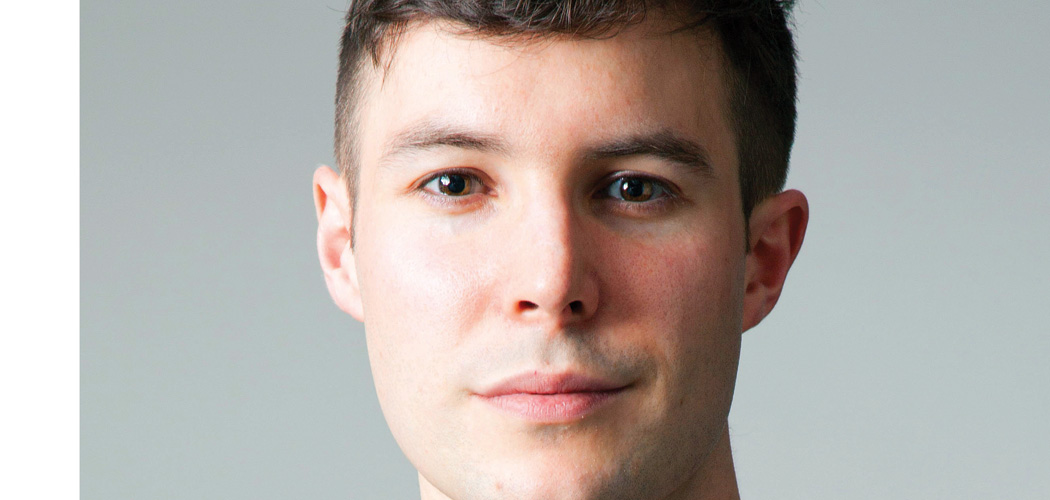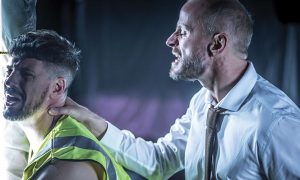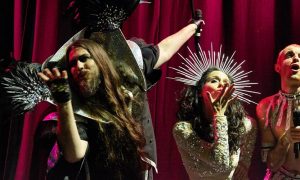Patrick Cash writes about the return of The HIV Monologues next week, and the reaction to the play after its first run.

Nick’s 27. He’s tall and handsome. He’s done everything asked of him in life: he went to university, he got a good job, he even scraped together a mortgage deposit in London. And, for a while, he found who he thought was the perfect boyfriend. Only when that relationship fell apart, so did the paper pillars holding up the theatre scenes of Nick’s self-esteem. And on the 30 July 2016, Nick was diagnosed HIV positive.
I’ve never been more anxious than after The HIV Monologues. I believe that I wrote it for the right reasons. When I’m not writing I work within sexual health, I’ve dated two HIV positive guys, and I care about my community. The tales of stigma experienced by my HIV positive friends fill me with anger. But, as of my last test, I’m not HIV positive. What if I get it wrong? When writing about HIV, self-worth and love, I am tackling deep, fragile things.
Luckily, the reactions have been encouraging. The first vote of confidence came from Jonathan Blake himself. Jonathan was diagnosed in 1982, and was played by Dominic West in Pride. When I interviewed him for Chelsea and Westminster Trust’s ‘HIV Conversations’ series, I asked to use certain details of his inspiring story in The HIV Monologues. As I was sending him the play to read, knowing he’d been an actor, I impulsively asked if he’d perform.
Cue an agonising week of waiting, until he replied saying he was no longer an actor but “yes.” He brings an emotive excellence to the role of Barney, who lost his lover in the 1980s.
The play is full of history, particularly exemplified by Charly Flyte’s powerful Irene, a nurse caring for the first AIDS patients in the UK. In writing her character I borrowed material from many interviews with Chelsea and Westminster staff who had worked on AIDS wards in the 80s. These included Leigh Chislett, now clinic manager for 56 Dean Street. Therefore it was fitting, but terrifying, to perform the play to hospital staff. Their approval was a relief.
But possibly the most demanding character to write was from the modern day: the character who has stigma. Denholm Spurr plays a young man named Alex, who’s cute and chatty and likeable. Yet he’s ignorant enough about HIV to react ridiculously when his dream Tinder date reveals he’s positive. I had to work closely with Denholm to ensure Alex was not too nasty, but even so, poor Denholm has the audience against him nightly for half the play!
Ultimately though, it seems most stigma does arise from ignorance. Undoubtedly there is real prejudice: HIV activists like Greg Owen and Tom Knight have screengrabbed Grindr conversations of unimaginable malice from small-hearted strangers. Yet a lack of speech about HIV contributes to a lack of education and, most crucially, fear. Like a homophobe who’s never met a gay person, gay men can become HIV-phobic from fear of the unknown.
Hopefully, the play contributes to a wider, honest conversation about HIV. Sometimes it seems the dialogue about HIV is wrapped in slut-shaming hysteria rather than truth, from media headlines to Grindr profiles. By showing Nick’s simple but truthful journey, intertwined with the other characters’ stories, we show the reality of a virus that has too often been allowed to divide us. For the fight is not between us as gay men, but us together against a virus.
The HIV Monologues runs from next Thursday (2 Feb) until Sunday 19 February at Miranda London, the Ace Hotel, 100 Shoreditch High Street, London, E1 6JQ. To book tickets, visit www.dragonflies theatre.co.uk/hiv-monologues.














